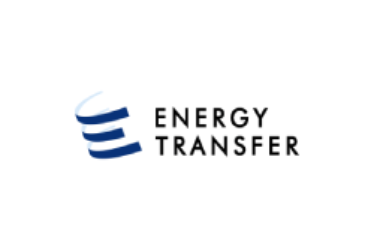· Brian Horton · Regulatory · 5 min read
Rover Pipeline Remains the Only Interstate Pipeline Without Blanket Certificate After Eight Years of Operation
Rover Pipeline remains the only currently operating interstate natural gas pipeline without a Part 157 blanket certificate—requiring full regulatory review for routine infrastructure projects that competitors can execute in weeks. The resulting delays, averaging 4 to 9 months per project, have direct implications for market responsiveness in energy-critical sectors like data centers and advanced manufacturing.

Rover Pipeline’s Regulatory Status Raises Operational and Competitive Questions
More than eight years after the Federal Energy Regulatory Commission (FERC) approved Rover Pipeline LLC’s initial infrastructure under Section 7(c) of the Natural Gas Act (NGA), the pipeline continues to operate without a Part 157, Subpart F blanket certificate—an authority routinely granted to other major interstate pipeline operators. This status has direct implications for Rover’s ability to respond to market opportunities and meet the timeline expectations of current and potential customers.
Initial Certificate and Conditional Pathway to Blanket Authority
Rover received its original NGA Section 7(c) certificate on February 2, 2017. At that time, FERC denied the company’s request for a Part 157 blanket certificate, citing environmental compliance concerns. The Commission indicated that Rover would be eligible to reapply for blanket authority after being in service for 18 months—effectively allowing for resubmission in May 2020—subject to a review of Rover’s compliance history.
As of August 2025, Rover has yet to receive blanket authority, despite having filed a new request and citing a multi-year record of environmental and regulatory compliance.
Implications of Blanket Certificate Absence
Under current FERC regulations, the absence of a Part 157 blanket certificate requires Rover to file individual Section 7(c) applications for routine infrastructure projects—such as new interconnections, meter stations, and minor facility upgrades—that competitors can execute under blanket authority. This introduces additional time and cost for Rover and its customers.
Between 2018 and 2025, Rover Pipeline submitted more than a dozen individual NGA Section 7(c) applications for facility modifications and interconnections that would typically qualify under FERC’s blanket certificate authority. These projects ranged in cost from under $300,000 to over $22 million and included new meter stations, delivery points, interconnects, and equipment replacements across Ohio, West Virginia, Michigan, and Pennsylvania. Approval times varied from as little as 2 months to as long as 11 months, with most projects taking between 4 and 9 months to secure FERC authorization. Several of these projects were categorically exempt from environmental assessments, underscoring their routine nature.
Operational Constraints and Market Impact
The lack of blanket authority limits Rover’s ability to meet time-sensitive project requests from developers, particularly in industries with accelerated infrastructure timelines such as AI-driven data centers, domestic manufacturing, and grid modernization projects.
As the market shifts toward faster deployment expectations, especially in energy-intensive sectors, delays associated with individual certificate filings can affect Rover’s competitiveness relative to pipelines operating under blanket authority. Customers seeking interconnection or expansion may face extended lead times and increased regulatory uncertainty when choosing Rover over alternative pipelines.
This issue may also affect investment decisions in regions served by Rover, including Pennsylvania, Ohio, and West Virginia—areas that are experiencing a rise in data center siting and other infrastructure development aligned with federal and state economic goals.
Environmental Compliance Record Since 2017
Rover has reported full compliance with the environmental conditions originally cited in the 2017 denial. According to FERC filings, Rover has adhered to environmental obligations for its initial pipeline system and for each subsequent Section 7(c) certificate granted for individual projects. Multiple projects have been approved without the need for additional environmental assessments, supporting Rover’s position that its operations meet standard industry environmental benchmarks.
Market Context and Regulatory Developments
Rover’s renewed request for blanket authority comes amid broader market and regulatory recognition of the need for expedited natural gas infrastructure development. In June 2025, FERC issued four orders in response to a petition by the Interstate Natural Gas Association of America (INGAA), acknowledging the importance of the blanket certificate program in a rapidly changing energy environment.
This acknowledgment coincides with increased federal and state support for energy infrastructure capable of supporting AI, digital services, and high-density manufacturing—all sectors that rely on rapid access to reliable energy.
Comparative Regulatory Position
As of this writing, Rover is the only currently operating interstate pipeline that does not hold a Part 157, Subpart F blanket certificate. This regulatory status places it at odds with peers in the industry and may influence project developers’ choices when evaluating pipeline interconnection options.
The lack of parity in regulatory treatment introduces a unique compliance burden that other pipeline operators and their customers do not face. It also introduces potential indirect environmental and economic impacts, as customers located near Rover’s system may be forced to connect to more distant infrastructure, increasing both cost and environmental footprint.
Next Steps and Outlook
Rover’s August 2025 filing with FERC requests issuance of blanket authority on an expedited basis. The company asserts that the current regulatory asymmetry hampers its ability to respond to customer needs and participate fully in emerging infrastructure development tied to national energy priorities.
Whether FERC will approve the request remains to be seen. However, from a business and regulatory standpoint, Rover’s status continues to be an outlier in an otherwise standardized permitting landscape.
For investors and developers evaluating energy infrastructure across the Midwest and Appalachian regions, Rover’s regulatory situation presents both a cautionary example of compliance-related risk and a potential inflection point—depending on how FERC responds in the coming months.
- Rover Pipeline blanket certificate
- AI infrastructure energy
- natural gas pipeline regulation
- AI data center energy demand